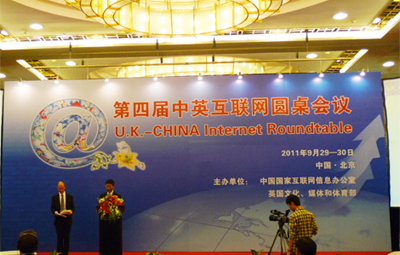Robots need the loving attention of human beings
Updated: 2011-10-07 10:07
By Ma Shugen (China Daily)
|
|||||||||
Research and investment are key factors in automating production, but that is not enough
Foxconn, a company known for assembling Apple's iPhones and iPads in China, plans to replace some of its factory workers with 1 million robots in the next three years, Xinhua News Agency has reported.
The competitiveness of Chinese companies has for a long time been fueled by a vast supply of cheap hands. But with the country's rapid economic growth, employees are becoming more picky about their working conditions and payment, and the shortage of skilled workers is contributing to driving up wages.
Soaring labor costs will force many companies to follow Foxconn's suit, which will be a fillip for the robotics industry. Robots can work 24 hours a day and keep a constant quality of products with high production speed, and are easier to manage than humans. Under the National Science and Technology Program 863, China now possesses robot design technology, the manufacturing process, the control hardware and software, and the motion planning technology, together with production capability of several essential components.
However, due to insufficient machining equipment and high costs of the basic components, the industrial robots most used in China still depend on imports. China should take the opportunity to develop its own robot industry, concentrating the funds and human resources on developing the key components such as actuators, sensors, and standardizing the production process to support the industry's growth.
However, it needs to be understood that having the wherewithal to make robots is of itself not enough. Putting them to efficient and effective use depends on having qualified and skilled engineers thoroughly familiar with robot technology and systems integration technology.
Industrial robots are strong on highly repetitive tasks and suitable for work that is dirty, dangerous and demanding, but they need qualified engineers to plan their work and to maintain them in a right order and in good conditions.
Such engineers can keep robots operating the way they should and ensure that an automated assembly line works the way it should. In short, system integration technology, together with experienced and qualified engineers, is crucial.
We can build automated lines by importing factory automation technology with imported industrial robots. However, to keep the automated assembly line working efficiently, continual improvement is needed. The engineers serving the automated assembly line are more important than the hardware.
For example, after Kawasaki Heavy Industries Ltd made its first industrial robot with the technological help of Unimation Inc in 1968, it took years to meet the needs of the Japanese automobile industry and make its goods more competitive with those of the US and Europe. This is why most Japanese companies own their own research institutes to technically support the manufacturing process.
In China it seems impracticable to follow the Japanese example. Most companies do not have such institutes at their disposal. In some European countries, industry is well served by the exchange of researchers between industries on one side and academic institutions on the other. Many professors come from industry, bringing the practical problems that can be thoroughly investigated at universities by using the institutions' intelligence and human resources. It would be a fine model for China to follow.
To do so, the first thing is for the government to offer policy support to improve the academic evaluation system that is now mainly associated with research papers. The government also needs to offer policy and fund support in research and development activities either by research institutes or industries.
Meanwhile, the research institutes including universities should meet industry demand by not only developing advanced technologies but also practical applications, as well as training qualified engineers.
Companies should invest money and human resources, applying the new and reliable technologies to help technology innovation. They should also invest in training employees to be qualified in the new automated world with the help of universities.
I hope the government-company-university can cooperate sufficiently and efficiently to serve society's needs. I also believe China's industries can and will transform themselves into entities that produce high-tech and high-value products from those that produce cheap products using cheaper labor. In sum, to achieve this goal we need a continual supply of qualified engineers, and companies need to take responsibility for advancing factory automation technology.
The author is professor of the Department of Robotics, Faculty of Science and Engineering, Ritsumeikan University, Japan.










